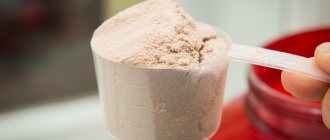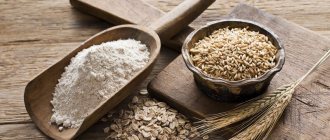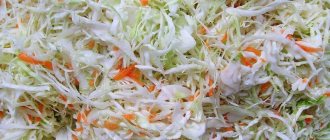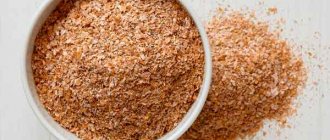Everyone has probably known this saying that bread is the head of everything since childhood. However, how relevant is it today? Even 7,000 years ago, such a product was consumed by the inhabitants of Ancient Egypt, and even then the question arose about the benefits and harms of white bread. Moreover, they ate not only the fresh product, but also crackers. They ate it a lot in Rus' and understood the benefits of such a tasty and nutritious product, and crackers were an invaluable element of the soldiers’ diet. Indeed, crackers could be taken on a hike; they did not spoil for a long time. Today it can be seen on every table.
There are a great many varieties of bread, however, one of the most common is white. The actual question is how useful such a product is and whether it can cause any harm. And this is really important, since at first bread served only as a certain kind of additive, making food nutritious and tasty. It’s hard to imagine a modern meal without it, for example, soup, main courses, porridge, and so on. But still, why is eating white bread sometimes harmful and sometimes beneficial?
What are the benefits of white bread
So, is white bread healthy? Many believe that such a product does more harm than good due to its calorie content, especially for those who pay attention to their figure. However, in fact, there are a lot of vitamins that are contained in flour and wheat. There are large quantities of B vitamins here, and there is also vitamin PP, which is extremely useful. Such substances best help improve the functionality of the nervous system, as well as other equally important organs.
If we talk directly about vitamin B, then it is necessary for the human nervous system, since it is thiamine. If we talk about vitamin B2, then it is it that has a beneficial effect on the skin, so it remains healthy for a long time. The skin under the influence of this vitamin remains smooth, attractive and has uniform elasticity. And vitamin PP has a beneficial effect on the human cardiovascular system.
However, the beneficial properties of such a product do not end there. Active mineral components are found here in abundance, and we are talking about fluorine, iron and phosphorus. It is known that without calcium it is impossible to strengthen bones; phosphorus also has a beneficial effect on the skeletal system; it is also necessary for the normal functioning of the human nervous system. If there is enough of it, then a person’s memory is strengthened, he becomes more intelligent and does not lose dexterity in different situations.
This is important for children whose skeletal system is in the formative stage, as well as the nervous system. And if we talk about iron, then it is simply irreplaceable for hemoglobin. Thanks to it, hemoglobin rapidly increases and oxygen begins to be transported throughout the body. And this is important, because if there is an insufficient amount of hemoglobin in the human body, this can cause various diseases. Moreover, they can be in the human body even in a vegetative state.
However, it must be said about the main property of the beneficial type - the presence of protein, and this substance is simply vital for the normal functioning of the human body. So there is nothing strange in the fact that bread is often the main food product, since, thanks to it, the body quickly saturates. It takes a long time to break down inside the digestive organs, which is important after a person has eaten.
It is clear why if any product is consumed with bread, such food will be digested for a long time. And if you eat any food without bread at all, the body can quickly become exhausted, since it will not receive the required amount of proteins and carbohydrates. But here it is important not to eat dried bread, since the dry crust is far from the most useful component of such a product.
So, it is important to store such a product correctly, most often this is done in a plastic bag; if it is left open, the bread will quickly dry out, so it will no longer be possible to eat it. If you want to maintain health and youth for a long time (and these are definitely the vast majority), you should not completely abandon such a common product, since such vital elements as here are not available anywhere else. So even those people who want to lose weight should not refuse to consume such a product. In this case, it is better to give up consuming other foods, for example, sweets and other delicacies that are very high in calories.
Myth 7th. Rye flour has less calories
In fact, flour has the same calorie content: 340 kcal per 100 grams. But bread is not only flour, so the calorie content of the finished product is higher. Rye and rye-wheat bread has 200-230 kcal, a white loaf has 250-270, and toast bread has 300 kcal.
Calorie content also depends on additives: seeds, nuts, raisins. Unscrupulous manufacturers may replace part of the rye flour with wheat flour, thus reducing the content of fiber and B vitamins, or add more sugar, thereby increasing the calorie content of the product.
About the dangers of such a product
However, white bread is also harmful, mainly due to the fact that a person simply consumes it in excessive quantities. If you believe the statistics, nutritional imbalance is often observed due to the consumption of large quantities of such a product, however, this is also aggravated by the fact that a person eats a lot of buns and other baked goods. This is not uncommon and causes not only excess weight, but also obesity.
However, this is not the only harm of white bread; we can also talk about exceeding the cholesterol level, so it is now clear why white bread is harmful to the human body.
And of course, white bread is harmful for those who already suffer from obesity; in such cases, its consumption should be stopped altogether. At least until the weight returns to normal. If you eat white bread crackers, you need to understand that only those that do not have added sugar are healthy. Such crackers should not be eaten, especially for those who are overweight. And simple crackers are useful, of course, only when consumed in moderation.
What kind of bread can you eat while breastfeeding?
Young mothers should know that grain products are necessary for the best recovery after childbirth and replenishment of the body with biologically valuable substances.
But you should be able to make the right choice, wisely limit portions, and be sure to take into account that breast milk should:
- have an optimal composition;
- do not cause unwanted reactions in the baby.
Skip the freshly baked white. It can contribute to weight gain and reduce the value of your milk, since the content of beneficial components is low.
But yesterday's bread or dried bread (in small portions) activates digestion, as does bran bread made from rye flour.
The latter is not suitable for gastritis, peptic ulcers, intestinal microflora disorders, and flatulence. In these cases, it is better to stick to a diet for gastritis of the stomach, eating only what is allowed.
Black bread made from rye and barley flour is recommended if there are no problems with digestion. Will help you lose weight, saturate you with macro- and microelements . It should not contain artificial flavors or dough improvers (this can cause allergies in infants).
The best option is multi-grain products, bread with bran .
How much of this product should you consume to avoid gaining weight?
In order for the consumption of such a product to be only beneficial and not harmful, it is necessary to regulate the amount of consumption. There is an opinion that you need to eat as much bread as your body deems necessary, but this opinion is definitely not correct. If it is consumed in uncontrolled quantities, excess fat forms on the sides and abdomen, which is often observed in the fair sex.
To avoid this, you need to eat no more than 5 pieces every day, and they are not eaten in one sitting, but spread over the day. You can, in principle, increase your consumption to 6 pieces per day, but you need to stop there. You need to eat bread, just enough so that there is only benefit.
At what age can you give bread to a child?
To enrich with nutrients and improve growth, you can offer your baby white wheat crackers from 7 months, and white bread (day-old or slightly dried) from 8 months. Starting with the smallest dose, increasing to 1/3 piece by 1 year.
Rye, whole grain - do not give until 3 years. The baby's enzyme system is still defective.
Sourdough is easier to digest than yeast.
Bread with bran is not recommended for children. Only over 4-5 years old, overweight and as prescribed by a specialist.
What to look for when purchasing?
If you decide to buy bread at your local store, you should pay attention to the following factors when purchasing:
- Best before date. Of course, everyone loves fresh white yeast bread, but due to the processes occurring in it, it is somewhat more harmful than the same bread that sits on the shelf for 1-2 days.
- Real content of BJU.
- Calorie content.
- Features of the composition.
And remember that good store-bought bread quickly becomes moldy. If your bread has been sitting for more than 3-4 days and has not started to mold, then there are questions regarding the purity of its composition.
Myth 6. Bread from the oven is harmful
Each nation has long had its own attitude towards fresh bread. In medieval France, piping hot bread was only served to members of the royal family. But in Asia at the same time, everything was the other way around - stale bread there was considered more valuable than freshly baked bread. By the way, in Rus' they treated fresh bread “in an Asian way.” For example, back in 1624, Tsar Mikhail Fedorovich issued a decree prohibiting the sale and consumption of freshly baked bread.
Freshly baked bread is undesirable to eat because it causes fermentation processes in the gastrointestinal tract. But there is probably no person who has never eaten a piece of hot bread with a glass of milk in his life. If you stop at a piece, nothing bad will happen. But eating a whole loaf of bread is already fraught with danger.
Myth 4. It is better to choose gluten-free baked goods.
Recently, gluten, a protein found in grains, has been blamed for a variety of diseases, including dementia, depression, obesity, autism and attention deficit disorder. However, gluten is a plant protein that is actually healthy. According to a study published in the British Journal of Nutrition, a gluten-free diet can lead to a lack of beneficial bacteria in the gut, which can affect the functioning of the immune system. Therefore, scientists believe that it is necessary to completely abstain from gluten only in extreme cases. For example, when there is a hereditary disease associated with gluten intolerance, in people who lack a special enzyme. However, there are less than 1% of such people worldwide.
Nutritional value and calorie content
We present to your attention a calculation of the nutritional value of 100 grams of white flour product:
- Calorie content - 266 kcal (1113 kJ).
- Carbohydrates - 50.61 g, including sugar - 4.31 g.
- Proteins - 7.64 g.
- Fat content (fat - 3.29 g; saturated fat - 0.717 g; monounsaturated fat - 0.681 g; polyunsaturated fat - 1.355 g).
- Sodium - 681 mg.
- Fiber - 2.4 g.
- Potassium - 100 mg.
Cholesterol is practically absent.
Few are able to refuse to eat white fragrant baked goods, especially women who use exhausting diets and are interested in the question of how many calories are in white bread or other flour products.
Did you know? 7 thousand years ago, the ancient Egyptians made a product that is the prototype of white bread. They were the first to think of adding yeast and yogurt to the dough, which significantly improved the texture and taste.
However, if you listen to the advice of many nutritionists, you can understand that it is impossible to gain weight from a small slice of wheat product (100 g - 266 kcal) per day, but you can only give the body some of the nutrients.
Afterword
Blaming people's health problems solely on bread products is unfair.
Diseases happen rather due to lifestyle, thinking, environment, uncontrolled use of antibiotics, unhealthy products offered to us by supermarkets. All this together lowers immunity, provokes malfunctions of organs, and the appearance of diseases. More theoretical and practical information about human health is here.
Considering all of the above, as well as the recommendations of the WHO and the Research Institute of Nutrition of the Russian Academy of Medical Sciences, which include whole grain products among the necessary ones it is unwise to exclude bread from the diet .











